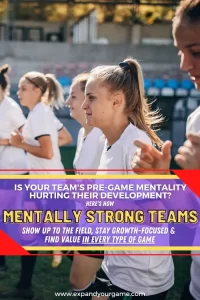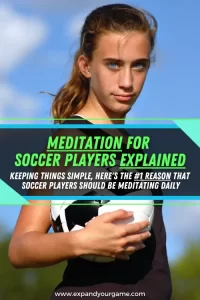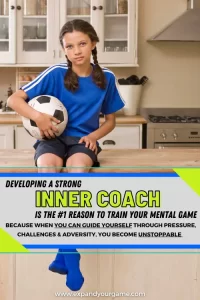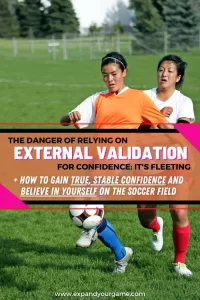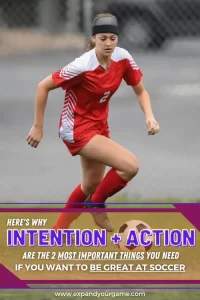When the bond between players on a soccer team is strong, amazing things can happen. When teammates work to support each other both on and off the field, when they truly care about the group and about one another, when individuals focus on something bigger than themselves, things just FLOW.
This is the power of the collective, and if you’ve ever experienced it, then you understand just how much of a positive impact it can have on how your team plays on the field. But if you’ve ever been on a team where cliques got in the way, you know just how detrimental they can be to the group, to your season, and even to your mindset.
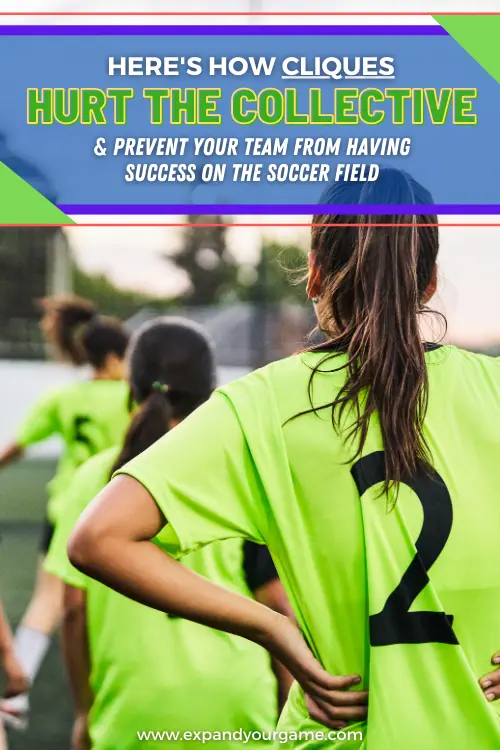
This Post Contains:
Cliques in soccer, the opposite of togetherness
Often the things that derail a season are not soccer-specific at all. Most of the time it is relational and cultural issues within the group, with cliques in soccer being one of the main culprits – especially in youth soccer.
When cliques in soccer form, they can become a cause of conflict within the team and hinder development for both the group and individual players. According to the Oxford Languages online dictionary, a clique is “a small group of people, with shared interests or other features in common, who spend time together and do not readily allow others to join them.”
If your team has an issue with cliques, players can feel isolated and excluded. Not feeling accepted can affect a player’s comfort level with the group and negatively impact game performance.
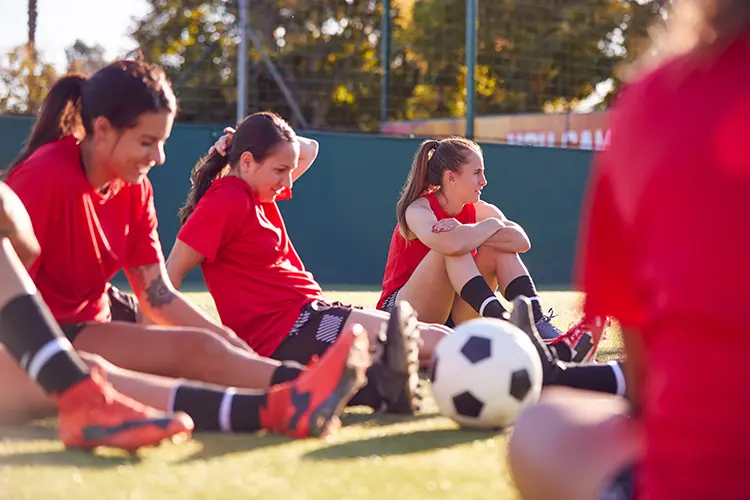
Cliques hurt the collective
Cliques in soccer hurt the collective in so many ways. They undermine whatever goals the team has by causing separation and disconnect. When there is separation and disconnect, players don’t always work to support and encourage one another. This can have detrimental consequences in certain circumstances, like trying to bounce back after a big loss.
When players feel like they don’t belong, they can invest a lot of energy, emotions, and thoughts into getting their teammates to like them, which takes away focusing on soccer. And if they already feel insecure about themselves and their abilities on the soccer field, this can lead to feeling even more insecure and further hurt their development and progression
The impact on collective play
Sometimes the soccer players IN the cliques might honestly not realize that they are being hurtful. However, the truth is that if even just one person feels alienated on the team by something that someone else is doing, then the issue of cliques in soccer needs to be addressed.
Why? Because if even just one person feels like they are being excluded, then it makes your whole team weaker. And that is an issue that everybody on the team should strongly care about and want to fix because it impacts your ability to play well together and win games.
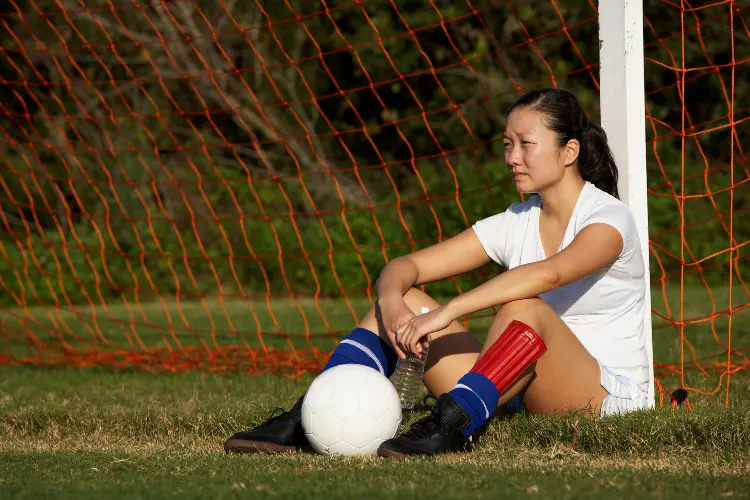
Here's exactly what cliques in soccer do to your team:
Everything about cliques hurts your team’s ability to connect and play well together on the pitch. It shows up in how players interact with each other. If players refuse to pass to certain teammates, yell at each other and get upset, the team will not be able to play good soccer. Negativity on the pitch results in disconnected play, avoidable errors, and an atmosphere that is simply not fun for anyone.
Here’s the biggest thing to consider–if there are players on your team that feel isolated, excluded, and separate – sure, you can be a good team still – but you WILL NEVER be great. To be great requires selfless play, togetherness, and an overall positive atmosphere where players are fully invested in one another.
Grow your confidence through preparedness.

Subscribe to our email list to
Get your FREE Weekly Soccer Planner!
We respect your privacy. Unsubscribe anytime.
Creating a clique-free culture
Strong team culture is the remedy to preventing cliques from hurting your soccer team. Good leaders understand that cliques in soccer are detrimental to success and wellbeing. Coaches, team captains, and frankly every member of the team, play a big role in helping to create a clique-free, inclusive culture.
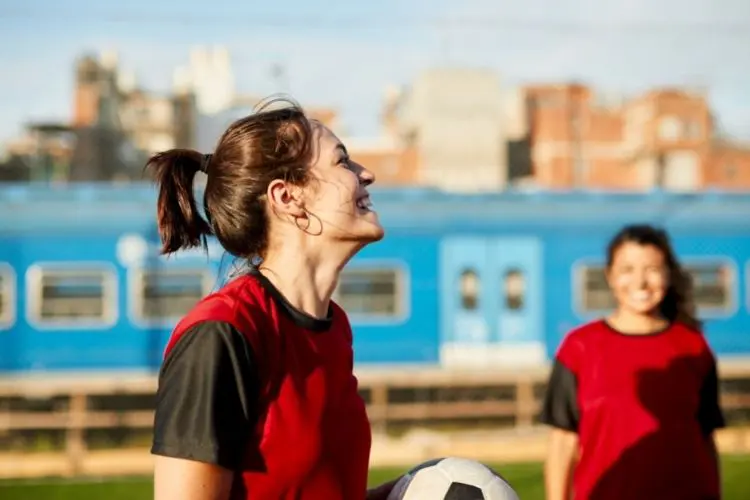
{Related read: Here’s how to create STRONG team culture on your soccer team}
Cliques in soccer can naturally happen anytime groups of players come together as a team. Being aware of this and staying proactive is important, especially because catching it early can help prevent more serious bullying issues.
What to do if there are cliques on your team
If you are a player on a team that has an issue with cliques, start by having a conversation with your team captain (if your captain is part of the problem, you can skip them and go directly to your coach). Good, effective team captains should listen to concerns with an open ear.
To feel more comfortable speaking up about cliques in soccer, know that you don’t have to name names or get specific. All you have to do is bring up the general issue of cliques and let leadership know that is is negatively impacting the team.

The way to move past issues with cliques is to address them straight on. If you are dealing with cliques in soccer, your captains or coaches need to call a team meeting where everyone can come together in a safe environment, an environment where the issue can be dealt with without any blaming or calling people out.
This post has been amended and expanded from the original version, which was written by Jenn for Girls Soccer Network and published on October 20, 2021. You can read it here.
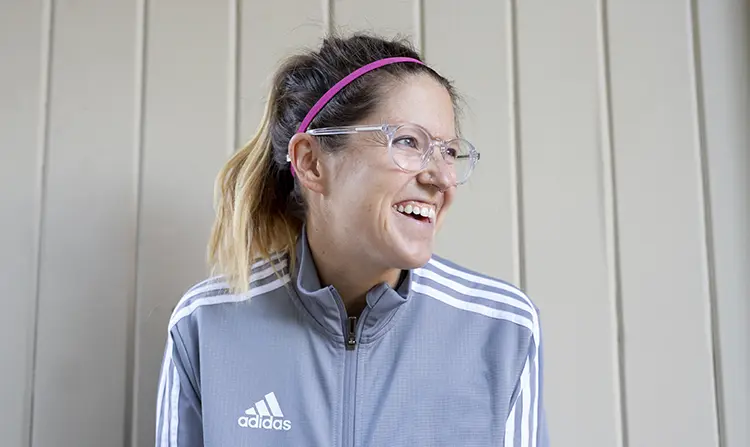
Hi everyone! I’m Jenn and I create content to help female soccer players and coaches maximize individual and team potential by developing healthy mindset skills. Join other subscribers and sign up for the newsletter for all my best tips and advice!
We respect your privacy. Unsubscribe anytime.


